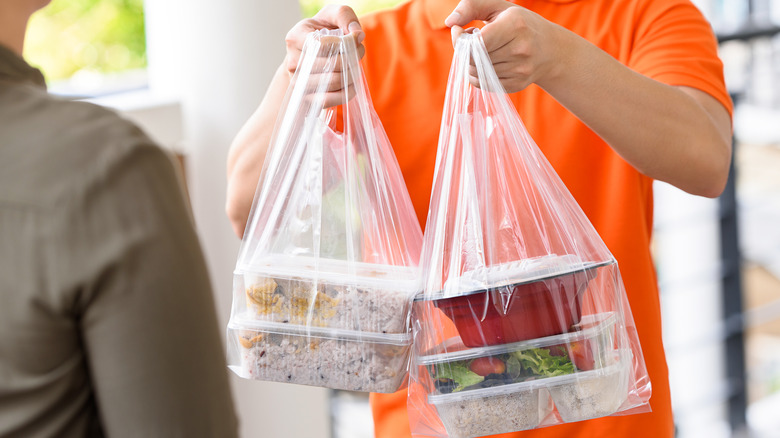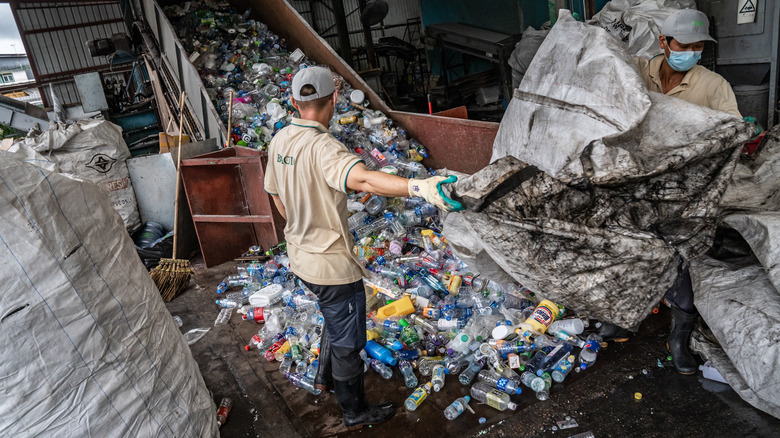This Is What Happens To Your Body If You Accidentally Eat Plastic
Have you ever eaten plastic? It may sound silly, but it turns out that it's actually pretty common, and a lot of us might have done so at some point in our lives — mostly accidentally. The data around eating plastic is astounding. According to an analysis conducted by the University of Newcastle, Australia, it was found that people may be ingesting amounts of plastic equivalent to the size of a credit card every week (via WWF). The primary source of consumed plastic was found to be from drinking water. High levels of plastic were also found in shellfish. As they are often consumed whole, potential microplastics in their system then find their way inside our bodies (via Plastic Tides).
Considering how plastics have become an integral part of our consumption and production habits, it is hard to part ways with them. According to the UN Environment (UNEP), a million plastic drinking bottles are purchased per minute. The report also highlights another surprising fact — half of all produced plastic is designed only for single use.
Bad news for the planet, right? Plastic is harming the environment, including marine life. But what happens if that same plastic — in one form or another — enters your body? What happens to your body when you accidentally eat plastic?
Our body tries to get rid of any accidentally consumed plastic
Did you accidentally chew on the thin end of a candy wrapper and swallow it? Worry not. You will be okay with that small amount of plastic in your body. Tiny pieces of plastic — smaller than a sesame seed — are called microplastics. A 2019 study revealed that depending on their sex and age, Americans consume between 39,000 to 52,000 microplastics annually. The study added that individuals who use bottled sources of water may consume an additional 90,000 microplastics per year (via Environmental Science & Technology).
So what happens to all this plastic in the body? According to Plastic Tides, most small amounts of plastic that you consume accidentally will leave your body after a day or so as the body naturally works to rid itself of contaminants. However, regular plastic consumption may lead to potential side effects. Per Spoon University, chemicals found in plastic can easily make their way into our bodies through microwaved food. Ingesting some of these chemicals could lead to asthma, cancer, miscarriage and premature birth, infertility in men, and abnormal sexual development, among others. Clearly, there are plenty of reasons to avoid plastic altogether!
Finding a way around plastic ingestion will involve more than just being careful when consuming products wrapped in plastic. Instead, consider using fewer plastic products and regularly practice recycling. Just a small step in saving our planet!


